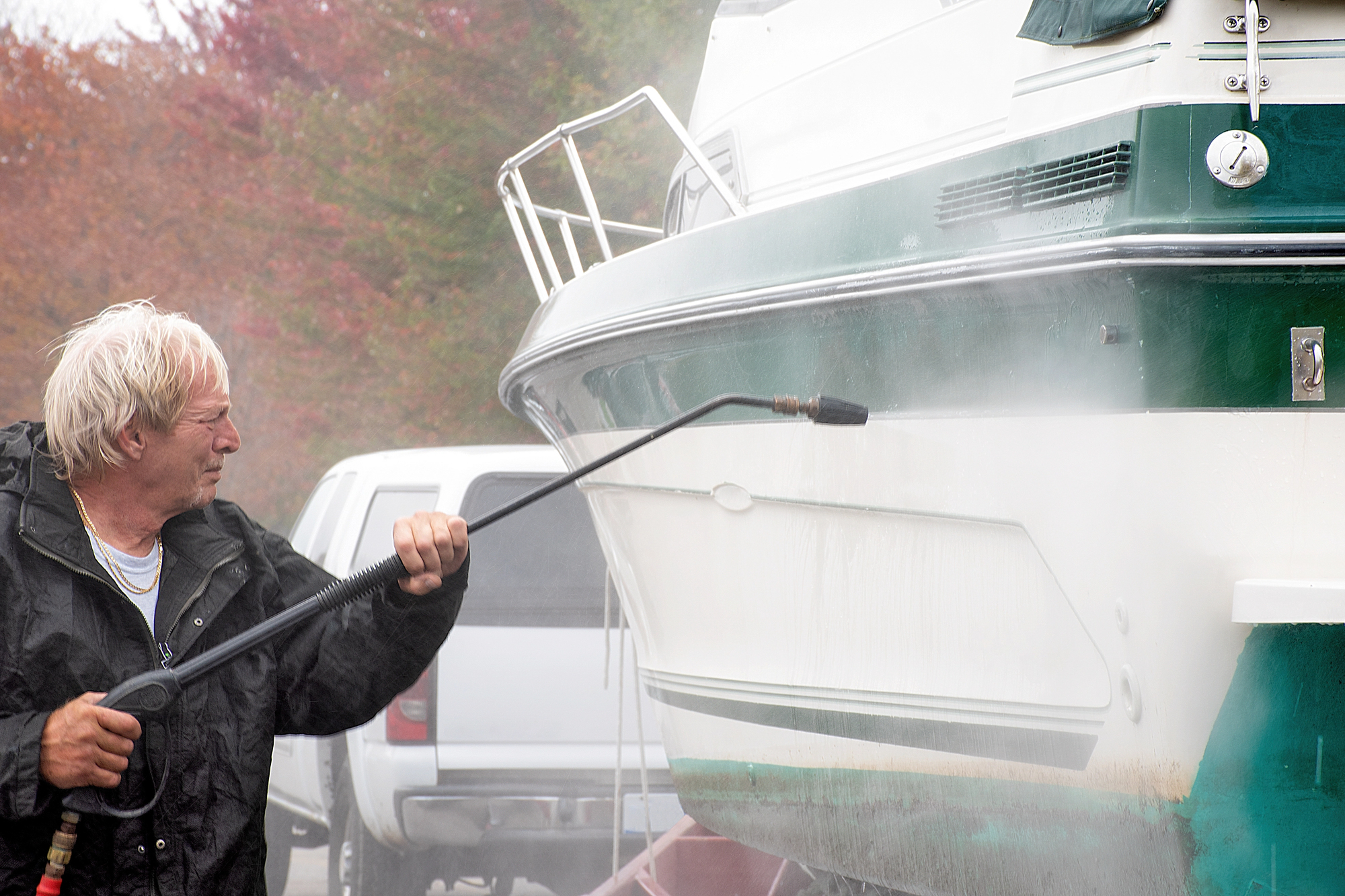
Whether you own a boat, pontoon, or personal watercraft (PWC/jet ski), proper winterization is the key to protecting your investment. Cold Kansas winters can be tough on engines, fuel systems, and hulls. But how much you need to do depends on where you store your watercraft.
⚠️ Important Note: Before you begin, always consult your owner’s manual or manufacturer’s documentation for your specific boat or PWC. Each make and model may have unique requirements for draining, flushing, or engine care. The checklist below is a general guide to common winterization practices, not a replacement for model-specific instructions.
If you choose indoor covered storage, many of the most time-consuming steps can be reduced or skipped. Outdoor storage, on the other hand, demands extra work to guard against snow, ice, and sun.
All Watercraft
Remove life jackets, towels, electronics, and gear.
Clean compartments and leave them open to prevent trapped moisture.
Wash the hull and deck to remove dirt, salt, and grime.
Outdoor Storage Only
Wax the exterior to help shield against UV and ice.
Boats, Pontoons, and Jet Skis
Drain all residual water from the engine and cooling system.
Run antifreeze through the system (marine or RV-grade) to prevent freeze damage.
👉 Indoor Storage Note: If your boat or PWC is kept in an unheated but enclosed garage, antifreeze is still necessary because temperatures drop below freezing even indoors.
All Watercraft with Engines
Fill the fuel tank and add stabilizer.
Run the engine briefly to circulate stabilized fuel.
Boats & PWCs with gasoline engines
Spray fogging oil into the carburetor or spark plug holes to coat cylinder walls.
Replace spark plugs afterward.
All Watercraft
Apply marine-grade lubricant to throttle cables, steering components, and exposed metal parts.
All Watercraft with batteries
Indoor Storage with Power: Leave the battery in place and connect it to a maintainer (AP Garages units have outlets for this).
Outdoor or No-Power Storage: Remove the battery and store indoors on a trickle charger.
Outdoor Storage Only
Block exhaust ports with steel wool to prevent pests.
Use a breathable cover to protect from snow, UV rays, and ice.
Plan to remove snow loads through the season.
Indoor Covered Storage
A simple dust cover is sufficient—no need for heavy-duty tarps or snow clearing.
At All Purpose Garages, indoor enclosed storage for boats and PWCs means:
❌ No need for waxing against UV.
❌ No wrestling with tarps or heavy-duty boat covers.
❌ No snow removal mid-season.
✅ Batteries can stay connected and maintained on trickle power.
✅ Your watercraft stays clean, dry, and ready for a faster spring launch.
All boats, pontoons, and PWCs need basic winterization, but indoor covered storage dramatically reduces the workload. If you store outdoors, you’ll spend extra time waxing, covering, and clearing snow. With enclosed storage, you winterize once, plug in your battery, and you’re done—leaving more time for fall activities and ensuring a quick start to next spring’s adventures.
Reserve your enclosed storage today and make winterization easier than ever.
For detailed instructions, always refer to your manufacturer’s owner’s or service manuals. Here are links to the most common watercraft brands:
Bayliner – Access model-year-specific manuals via the “Documents & Manuals” section of the Owners Corner
Chaparral Boats – Use myChaparral to download owner’s manuals directly for your model
Crest Pontoons – Browse and download owner’s manuals from their Owners site
Bennington Pontoons – Find owner’s packets and downloadable PDFs through the Owner Resources page
Tracker Boats – Visit the Manuals & Guides section to view operator manuals and documentation
Sea-Doo (BRP) – Operator's Guide BRP
Yamaha WaveRunner – Owner’s Manuals
Kawasaki Jet Ski – Service Manuals
Mercury Marine – Owner Resources
Yamaha Outboards – Owner’s Manuals
Honda Marine – Owner’s Manuals
Suzuki Marine – Owner FAQ; For Owner's Manual, contact customer service directly.